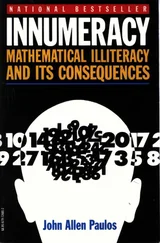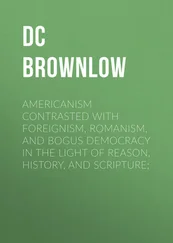John Ruskin - A Joy For Ever (and Its Price in the Market)
Здесь есть возможность читать онлайн «John Ruskin - A Joy For Ever (and Its Price in the Market)» — ознакомительный отрывок электронной книги совершенно бесплатно, а после прочтения отрывка купить полную версию. В некоторых случаях можно слушать аудио, скачать через торрент в формате fb2 и присутствует краткое содержание. Жанр: foreign_antique, foreign_home, literature_19, visual_arts, на английском языке. Описание произведения, (предисловие) а так же отзывы посетителей доступны на портале библиотеки ЛибКат.
- Название:A Joy For Ever (and Its Price in the Market)
- Автор:
- Жанр:
- Год:неизвестен
- ISBN:нет данных
- Рейтинг книги:5 / 5. Голосов: 1
-
Избранное:Добавить в избранное
- Отзывы:
-
Ваша оценка:
- 100
- 1
- 2
- 3
- 4
- 5
A Joy For Ever (and Its Price in the Market): краткое содержание, описание и аннотация
Предлагаем к чтению аннотацию, описание, краткое содержание или предисловие (зависит от того, что написал сам автор книги «A Joy For Ever (and Its Price in the Market)»). Если вы не нашли необходимую информацию о книге — напишите в комментариях, мы постараемся отыскать её.
A Joy For Ever (and Its Price in the Market) — читать онлайн ознакомительный отрывок
Ниже представлен текст книги, разбитый по страницам. Система сохранения места последней прочитанной страницы, позволяет с удобством читать онлайн бесплатно книгу «A Joy For Ever (and Its Price in the Market)», без необходимости каждый раз заново искать на чём Вы остановились. Поставьте закладку, и сможете в любой момент перейти на страницу, на которой закончили чтение.
Интервал:
Закладка:
15. Observe, I do not mean in the least that we ought to place such an authority in the hands of any one person, or of any class or body of persons. But I do mean to say that as an individual who conducts himself wisely must make laws for himself which at some time or other may appear irksome or injurious, but which, precisely at the time they appear most irksome, it is most necessary he should obey, so a nation which means to conduct itself wisely, must establish authority over itself, vested either in kings, councils, or laws, which it must resolve to obey, even at times when the law or authority appears irksome to the body of the people, or injurious to certain masses of it. And this kind of national law has hitherto been only judicial; contented, that is, with an endeavour to prevent and punish violence and crime: but, as we advance in our social knowledge, we shall endeavour to make our government paternal as well as judicial; that is, to establish such laws and authorities as may at once direct us in our occupations, protect us against our follies, and visit us in our distresses: a government which shall repress dishonesty, as now it punishes theft; which shall show how the discipline of the masses may be brought to aid the toils of peace, as discipline of the masses has hitherto knit the sinews of battle; a government which shall have its soldiers of the ploughshare as well as its soldiers of the sword, and which shall distribute more proudly its golden crosses of industry—golden as the glow of the harvest, than now it grants its bronze crosses of honour—bronzed with the crimson of blood.
16. I have not, of course, time to insist on the nature or details of government of this kind; only I wish to plead for your several and future consideration of this one truth, that the notion of Discipline and Interference lies at the very root of all human progress or power; that the "Let-alone" principle is, in all things which man has to do with, the principle of death; that it is ruin to him, certain and total, if he lets his land alone—if he lets his fellow-men alone—if he lets his own soul alone. That his whole life, on the contrary, must, if it is healthy life, be continually one of ploughing and pruning, rebuking and helping, governing and punishing; and that therefore it is only in the concession of some great principle of restraint and interference in national action that he can ever hope to find the secret of protection against national degradation. I believe that the masses have a right to claim education from their government; but only so far as they acknowledge the duty of yielding obedience to their government. I believe they have a right to claim employment from their governors; but only so far as they yield to the governor the direction and discipline of their labour; and it is only so far as they grant to the men whom they may set over them the father's authority to check the childishnesses of national fancy, and direct the waywardnesses of national energy, that they have a right to ask that none of their distresses should be unrelieved, none of their weaknesses unwatched; and that no grief, nor nakedness, nor peril, should exist for them, against which the father's hand was not outstretched, or the father's shield uplifted. 3 3 Compare Wordsworth's Essay on the Poor Law Amendment Bill. I quote one important passage: "But, if it be not safe to touch the abstract question of man's right in a social state to help himself even in the last extremity, may we not still contend for the duty of a Christian government, standing in loco parentis towards all its subjects, to make such effectual provision that no one shall be in danger of perishing either through the neglect or harshness of its legislation? Or, waiving this, is it not indisputable that the claim of the State to the allegiance, involves the protection of the subject? And, as all rights in one party impose a correlative duty upon another, it follows that the right of the State to require the services of its members, even to the jeopardizing of their lives in the common defence, establishes a right in the people (not to be gainsaid by utilitarians and economists) to public support when, from any cause, they may be unable to support themselves."—(See note 2nd, in Addenda.)
17. Now, I have pressed this upon you at more length than is needful or proportioned to our present purposes of inquiry, because I would not for the first time speak to you on this subject of political economy without clearly stating what I believe to be its first grand principle. But its bearing on the matter in hand is chiefly to prevent you from at once too violently dissenting from me when what I may state to you as advisable economy in art appears to imply too much restraint or interference with the freedom of the patron or artist. We are a little apt, though on the whole a prudent nation, to act too immediately on our impulses, even in matters merely commercial; much more in those involving continual appeals to our fancies. How far, therefore, the proposed systems or restraints may be advisable, it is for you to judge; only I pray you not to be offended with them merely because they are systems and restraints.
18. Do you at all recollect that interesting passage of Carlyle, in which he compares, in this country and at this day, the understood and commercial value of man and horse; and in which he wonders that the horse, with its inferior brains and its awkward hoofiness, instead of handiness, should be always worth so many tens or scores of pounds in the market, while the man, so far from always commanding his price in the market, would often be thought to confer a service on the community by simply killing himself out of their way? Well, Carlyle does not answer his own question, because he supposes we shall at once see the answer. The value of the horse consists simply in the fact of your being able to put a bridle on him. The value of the man consists precisely in the same thing. If you can bridle him, or, which is better, if he can bridle himself, he will be a valuable creature directly. Otherwise, in a commercial point of view, his value is either nothing, or accidental only. Only, of course, the proper bridle of man is not a leathern one: what kind of texture it is rightly made of, we find from that command, "Be ye not as the horse or as the mule which have no understanding, whose mouths must be held in with bit and bridle." You are not to be without the reins, indeed; but they are to be of another kind: "I will guide thee with mine Eye." So the bridle of man is to be the Eye of God; and if he rejects that guidance, then the next best for him is the horse's and the mule's, which have no understanding; and if he rejects that, and takes the bit fairly in his teeth, then there is nothing left for him than the blood that comes out of the city, up to the horse-bridles.
19. Quitting, however, at last these general and serious laws of government—or rather bringing them down to our own business in hand—we have to consider three points of discipline in that particular branch of human labour which is concerned, not with procuring of food, but the expression of emotion; we have to consider respecting art: first, how to apply our labour to it; then, how to accumulate or preserve the results of labour; and then, how to distribute them. But since in art the labour which we have to employ is the labour of a particular class of men—men who have special genius for the business—we have not only to consider how to apply the labour, but, first of all, how to produce the labourer; and thus the question in this particular case becomes fourfold: first, how to get your man of genius; then, how to employ your man of genius; then, how to accumulate and preserve his work in the greatest quantity; and, lastly, how to distribute his work to the best national advantage. Let us take up these questions in succession.
Читать дальшеИнтервал:
Закладка:
Похожие книги на «A Joy For Ever (and Its Price in the Market)»
Представляем Вашему вниманию похожие книги на «A Joy For Ever (and Its Price in the Market)» списком для выбора. Мы отобрали схожую по названию и смыслу литературу в надежде предоставить читателям больше вариантов отыскать новые, интересные, ещё непрочитанные произведения.
Обсуждение, отзывы о книге «A Joy For Ever (and Its Price in the Market)» и просто собственные мнения читателей. Оставьте ваши комментарии, напишите, что Вы думаете о произведении, его смысле или главных героях. Укажите что конкретно понравилось, а что нет, и почему Вы так считаете.












